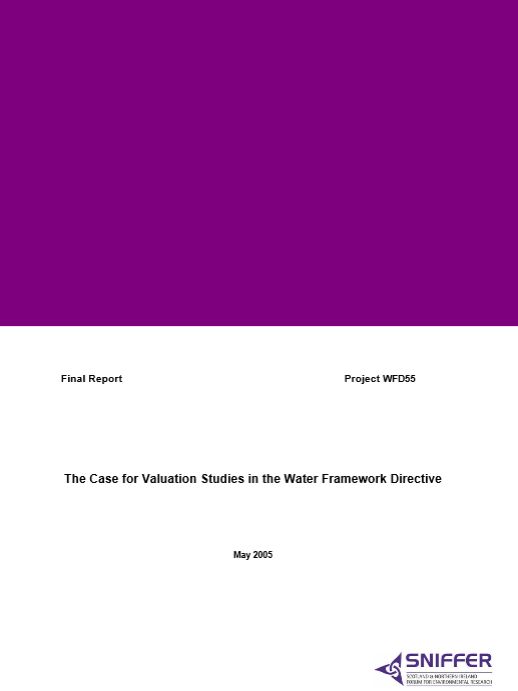Ecologic has been commissioned by the Scotland and Northern Ireland Forum for Environmental Research (SNIFFER) to develop practicable proposals for implementing the economic aspects of the Water Framework Directive in Scotland and Northern Ireland, with a particular focus on the possible role of economic valuation studies. The now available study deals mainly with the assessment of disproportionate costs (linked to the Art. 4 exemptions), while also addressing the selection of measures (Art. 11). It recommends a staged and flexible approach, which takes account of the specific conditions in Scotland and Northern Ireland.
The EU Water Framework Directive (WFD) introduces several policy innovations into water management in Europe. The most important of these is the integrated approach to water management that the Directive establishes, which considers the entire river basin. Among the novelties introduced by the WFD is also the incorporation of economic approaches throughout the implementation. For the first time in a major EU environmental Directive, economic approaches are used systematically to support decision making, ensuring that (financial) resources are spent efficiently, that targets are achieved at lowest cost and that the polluter-pays-principle is implemented. In the WFD, the most prominent economic aspects concern the selection of cost-effective sets of measures for achieving good ecological status / potential in all water bodies, the implementation of the principle of cost recovery for water services, and the decision on derogations, if achieving good status should prove to be disproportionately costly.
Objectives of research
This study sets out from the draft methodological framework for cost-effectiveness analysis in the WFD, which was developed by RPA for Defra, and which makes suggestions on the procedure for the selection of measures, ans on the cost and benefit information to support an assessment of disproportionality in the decision on derogations. Against this background, the present study was set up to examine how valuation studies inform decision making processes, and which role they play for economic assessment tools. It also identifies alternative approaches to support WFD-related decision making, especially for decisions on straightforward cases. Solutions for decision making support are developed, taking account of the specific situation in Scotland and Northern Ireland, and maximising the use of existing information that the agencies in Scotland and Northern Ireland already collect or that can be easily obtained. Finally, it discusses the degree to which valuation of costs and benefits is required in order to make good regulatory decisions in the implementation of the WFD.
Key findings and recommendations
For those decisions in the WFD implementation where economic considerations will play a role, a number of assessment tools are available, ranging from expert judgement on simple cases to different types of cost-benefit analysis or multi-criteria analysis for the most complex decisions. Only few of these assessment methods require input from monetary valuation studies in the form of monetised costs or benefits. In general, the most complex decisions requiring most input from valuation studies will be the assessment of disproportional costs in the context of derogations. In a small number of complex cases, a full cost-benefit analysis including the monetisation of all relevant effects may not be avoided. The challenge is to develop a classification scheme that allows sorting the decision situations by order of complexity, targeting the use of elaborate economic assessment tools at a small percentage of cases. For the selection of measures, valuation studies are generally not expected to play a major role, except for non-water-related externalities, which may be assessed through benefits transfer.
The results of the project are available for download:
- Executive Summary [pdf, 70 KB, English]
- Full Report [pdf, 825 KB, English]



